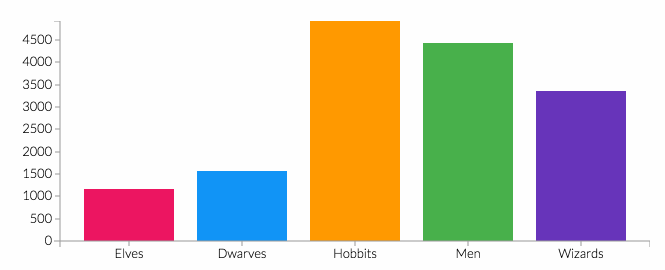Culture of Siri' in Learning Akidah Akhlak in MAN Suli Luwu District
DOI:
https://doi.org/10.33853/jiebar.v1i1.91Keywords:
Application, Siri Culture ', Learning Akidah AkhlakAbstract
The application of siri' culture in learning akidah akhlak is reflected in the attitudes of students through discipline and responsibility. Discipline and responsibility of students are dignity, and self-respect which is a reflection of the height of siri'. Enforce good discipline through the code of ethics of students. 2) The culture of siri' functions as the spirit of students in the educational process. The values of akidah and morals which are summarized in the values of Divinity (ilahiyah), Humanity, and Naturalness have in common with the values of siri' which are summarized in the elements of siri': Pajjama, Lempu', Getteng, and Sipakatau. 3) The internalization of siri' culture in learning akidah akhlak is a must because implementing the culture of siri' is the same as applying Islamic values.References
Abi> Hasan Muslim, Iman, Shah>ih Muslim, juz 8, Darul Ma’rif Beirut-Lebanon, 261 H.
Achmad, S. (2012). Strategi Kesopanan Berbahasa Masyarakat Bugis Pinrang Provinsi Sulawesi Selatan. Bahasa Dan Seni, 40(1), 1–13. Retrieved from http://journal2.um.ac.id/index.php/jbs/article/view/117/90
Anwar, M., Din, O., & Zakaria, Z. (2010). Kesenian bernuansa Islam suku Melayu Minangkabau. Jurnal Melayu, 5(5), 227–249.
Arief, S. (2008). Dinamika Jaringan Intelektual Pesantren Di Sulawesi Selatan. Lentera Pendidikan : Jurnal Ilmu Tarbiyah Dan Keguruan, 11(2), 167–181. https://doi.org/10.24252/lp.2008v11n2a3
Ismail Suwardi Wekke, Arhanuddin Salim, Y. S. (2018). Pendidikan Karakter Dalam Masyarakat Bugis. Ijtimaiyya: Jurnal Pengembangan Masyarakat Islam, 11(1), 41–62. https://doi.org/10.24042/ijpmi.v11i1.3415
Latif, A. (2015). Concepts of Wanua and Palili : The Buginese Political Geography in Confederation of Ajatappareng in South Sulawesi, 3(1), 1–18.
LOBO, L. L. (2016). REPRESENTASI KEBUDAYAAN BUGIS-MAKASSAR DALAM LIRIK LAGU ALBUM “ALKISAH†BAND INDIE THEORY OF DISCOUSTIC (ANALISIS SEMIOTIKA). ثبثبثب, 2002(1), 35–40. https://doi.org/10.1109/ciced.2018.8592188
Mohamed, I., Asimiran, S., Mohd Daud, S., & Ahmad, S. (2015). Student Teachers Character Development in Teacher Education Institutes: A Review. Jurnal Personalia Pelajar, 18(1), 107–113.
Mundilarto. (2013). Membangun Karakter Melalui Pembelajaran Sains. Jurnal Pendidikan Karakter, 2(2), 153–163. https://doi.org/10.21831/jpk.v2i2.1436
Muraqmi, A., Anam, S., & Pitopang, D. R. (2015). ETNOBOTANI MASYARAKAT BUGIS DI DESA LEMPE KECAMATAN DAMPAL SELATAN KABUPATEN TOLITOLI. Jurnal Biocelebes (Vol. 9).
Musanna, A. (2010). Revitalisasi Kurikulum Muatan Lokal Untuk Pendidikan Karakter Melalui Evaluasi Responsif. Jurnal Pendidikan Dan Kebudayaan, 16(9), 245. https://doi.org/10.24832/jpnk.v16i9.516
Mustari, A. (2016). PEREMPUAN DALAM STRUKTUR SOSIAL DAN KULTUR HUKUM BUGIS MAKASSAR, 9(1), 127–146.
Rahmi, S., Mappiare-AT, A., & Muslihati, M. (2017). Karakter Ideal Konselor dalam Budaya Bugis Kajian Hermeneutik Terhadap Teks Pappaseng. Jurnal Pendidikan: Teori, Penelitian, Dan Pengembangan, 2(2), 228–237.
Syarif, E., Sumarmi, S., & Astina, I. K. (2016). Integrasi Nilai Budaya Etnis Bugis Makassar Dalam Proses Pembelajaran Sebagai Salah Satu Strategi Menghadapi Era Masyarakat Ekonomi Asean (MEA). Jurnal Teori Dan Praksis Pembelajaran IPS, 1(1), 13–21. https://doi.org/10.17977/um022v1i12016p013
Wekke, I. S. (2013). Islam dan adat : tinjauan akulturasi budaya dan agama dalam Masyarakat Bugis. Analisis, XIII(1), 27–56.
Yunus, Y. (2018). Pendidikan Agama Islam Berbasis Kearifan Lokal Dan Dampak Terhadap Pendidikan Karakter, 2(1), 153–169.
Yunus, 2020. Kearifan Lokal Budaya Bugis dan Pluralisme (Studi Pendidikan Karakter Pada Perguruan Tinggi di Kota Palopo), Pondok Cabe: Penerbit Young Progressive Muslim (YPM), 41.










